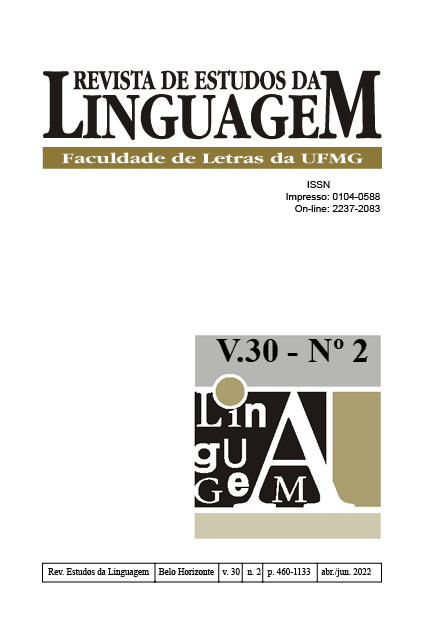O conceito de ‘construção’ e a prática de reflexão linguística no ensino de língua materna
potencialidades e desafios com foco no uso
DOI:
https://doi.org/10.17851/2237-2083.30.2.635-660Palabras clave:
construções, Gramática Cognitiva, ensino de língua materna, reflexão linguística, usoResumen
O objetivo deste artigo é apresentar uma proposta sobre a intersecção do conceito de ‘construção’, proposto pela Gramática Cognitiva, com a prática de reflexão linguística em aulas de língua materna, alinhada a uma abordagem de uso da língua. Para tanto, apresenta-se uma breve revisão dos conceitos pertinentes para o diálogo proposto e, em seguida, desenvolve-se uma análise de caso. São analisadas construções com verbos de movimento (‘ir’, ‘vir’ e ‘chegar’) seguidos pelas preposições ‘a’, ‘em’ e ‘para’, a partir da identificação e da descrição de tais construções no Corpus TecEM, composto por textos escritos por alunos de Ensino Médio em suas aulas de língua portuguesa. Argumenta-se que o conceito de ‘construção’ na perspectiva teórica adotada informa e instrumentaliza a prática de reflexão linguística que parte da compreensão de que a significação extrapola o nível do item lexical, estando presente, inclusive, na estrutura sintática. Por fim, são destacadas as potencialidades e os desafios relacionados à inclusão do conceito de ‘construção’, associado aos construtos teóricos basilares da Linguística Cognitiva, em práticas didáticas no ensino de língua materna.





